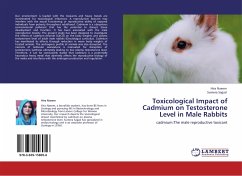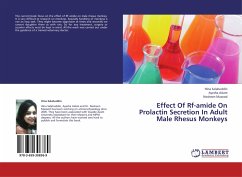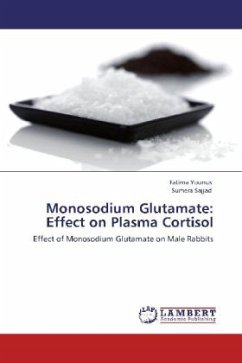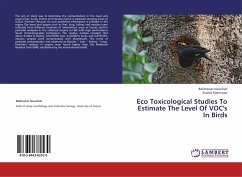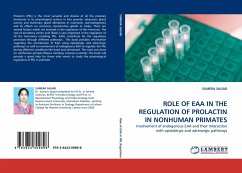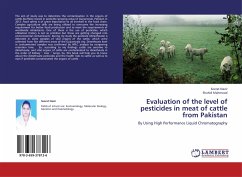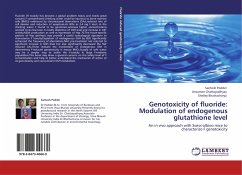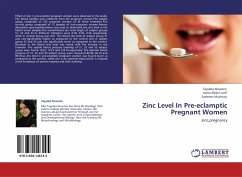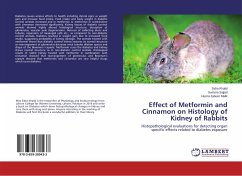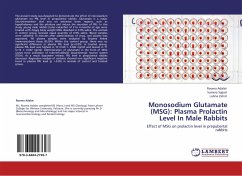
Monosodium Glutamate (MSG): Plasma Prolactin Level In Male Rabbits
Effect of MSG on prolactin level in prepubertal rabbits
Versandkostenfrei!
Versandfertig in 6-10 Tagen
32,99 €
inkl. MwSt.

PAYBACK Punkte
16 °P sammeln!
The present study was designed to demonstrate the effect of monosodium glutamate on PRL level in prepubertal rabbits. Glutamate is a major neurotransmitter that acts on extensive brain regions, such as hypothalamus and the pituitary and induce the secretion of PRL. In this study, young male rabbits (Lates calcarifer) of 3 to 4 months of age were treated with 2mg/g body weight MSG dissolved in 0.9% saline. The animals in control group received equal quantity of 0.9% saline. Blood samples were collected 15 minutes after administration of drug, and plasma was separated. All plasma samples were an...
The present study was designed to demonstrate the effect of monosodium glutamate on PRL level in prepubertal rabbits. Glutamate is a major neurotransmitter that acts on extensive brain regions, such as hypothalamus and the pituitary and induce the secretion of PRL. In this study, young male rabbits (Lates calcarifer) of 3 to 4 months of age were treated with 2mg/g body weight MSG dissolved in 0.9% saline. The animals in control group received equal quantity of 0.9% saline. Blood samples were collected 15 minutes after administration of drug, and plasma was separated. All plasma samples were analyzed by Enzyme linked Immunosorbent Assay (ELISA). Within the control group, there was no significant difference in plasma PRL level (p0.05). In treated group, plasma PRL level was highest in T2 (2.69 ± 0.042 ng/ml) and lowest in T1 (2.16 ± 0.067 ng/ml). Administration of glutamate in the form of MSG causes tonic activation of tuberinfudibular dopaminergic neuron system (TIDA). As a resultdopamine release, PRL level in prepubertal rabbits decreases. Regression analysis of variance showed non significant negative trend in plasma PRL level (p 0.05) in animals of control and treated group.



